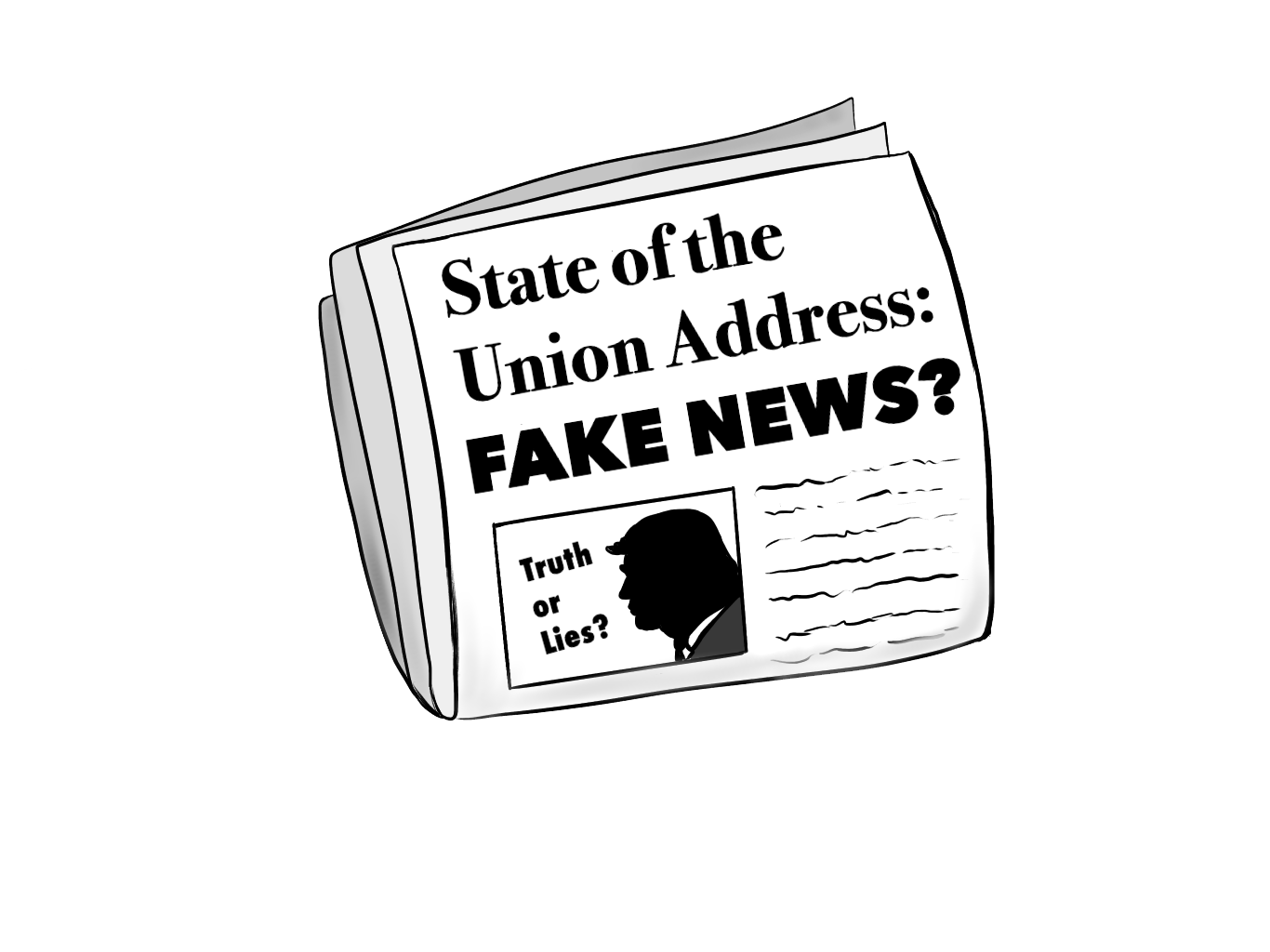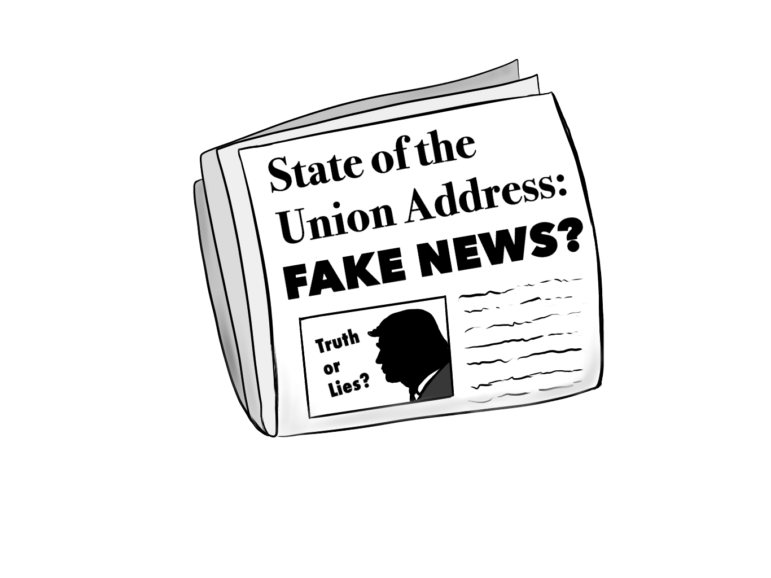

President Donald Trump delivered his second State of the Union Address on Feb. 5, despite concerns that it would be cancelled over disputes involving the construction of a U.S.- Mexico border wall. While the government was in a partial shutdown from Dec. 22 to Jan. 25, Speaker of the House Nancy Pelosi invited President Trump to deliver his address after he reopened the government in an effort to promptly end the shutdown.
The address was delivered 11 days after the government reopened to high ratings. Although CBS found that 76 percent of polled viewers approved of President Trump’s speech, 43 percent of viewers were members of the Republican party; 24 percent of viewers identified as Democrat and 30 percent considered themselves as Independent.
Among many topics discussed by the president was the prominent issue of border security, suggesting that the Trump administration would declare a national emergency to avoid another government shutdown while still breaking ground on the border wall. Trump later declared a national emergency on Feb. 14, and it came into effect over the following weekend.
“He shut down the government in hopes to get a border wall for the southern border, which did not happen, so he gave them 10 days to agree to the deal, but since they failed to do so, he declared a national emergency to get it done,” said junior Dylan Harrison.
Some factual errors existed in the information the president delivered in his address.
“The part of his speech about the Wall and the U.S.-Mexico border was mostly false,” said junior Andres Zimmermann. “Illegal immigration is on the decline, and immigrants commit fewer crimes than native-born Americans.”
The Pew Research Center found that the number of illegal immigrants from Mexico living in the United States has declined from 6.9 to 5.4 millions of people from 2007 to 2016.
Zimmermann wanted to hear the president address election security and the proven Russian meddling in the 2016 election, as well as foreign affairs.
“The entire intelligence community has said that Russia has interfered [in the election]; however, Trump has done nothing about it and has instead sucked up to Putin,” Zimmermann said. “[In] Saudi Arabia … their murdering of journalists and human rights abuses in the Yemeni Civil War [are] disgusting. I am deeply concerned by the fact that the U.S. has done nothing about this.”
Among highlights of the speech were the president’s promises to fund research to cure childhood cancers and to address legislation regarding life sentences for offenders.
“I liked a lot of the topics he discussed … such as his new bill to exonerate extremely long life sentences for nonviolent drug offenders. He even brought one of the people he has already exonerated after 22 years in prison,” Harrison said. “I really liked that he addressed that we are bringing all of our troops in Syria home.”
Under the Trump administration, the unemployment rate declined to 3.7 percent, the lowest rate since 1969. By Jan. 2019, it had raised 0.3 percent, but not without first creating a notable increase in manufacturing jobs.
“[Trump] discussed what I believe is one of the most important things, bringing back jobs to America which he has done masterfully,” Harrison said. “In January alone, the administration created 304,000 jobs, which were double of what they thought they would make.”
Traditionally, State of the Union Addresses are a way for the sitting president to present their agenda for the following year as well as reflect upon past achievements.
“It’s more national chauvinistic,” said junior Franklin Lee. “It’s not necessarily a bad thing, but it does portray his party as extremely positive for the United States, whereas oftentimes the speeches of President Obama tended to focus on issues that would pertain to their administration. “Trump’s State of the Union was just a little agenda motivated … but he’s much more straightforward when he does this, which isn’t necessarily bad, but it does indicate that he is less willing to compromise.”
Zimmermann believes that the State of the Union Address is not relevant to many everyday Americans.
“I would highly doubt that the average American watches or cares about the State of the Union,” Zimmermann said. “The speech is really only important to political junkies, journalists and Washington insiders.”
Lee questions the necessity of a State of the Union Address given today’s technological advancements.
“State of the Unions were mostly created before we had mass media for presidents to exercise transparency with their output … their voters and Congress,” Lee said. “It’s made possible by institutions that have been created by mass media and because of those constant updates we get from Trump that we don’t really need State of the Union Addresses as much as we used to.”
